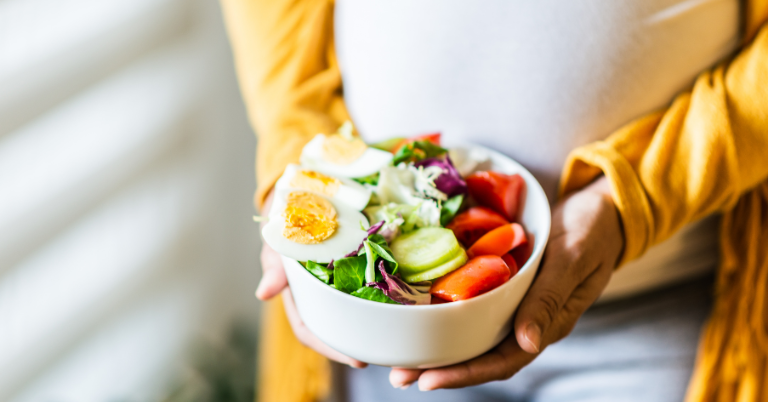Introduction
As an expectant mother, eating a healthy diet during pregnancy is one of the most important things you can do to ensure the health of your baby. But with all the conflicting information out there, it can be hard to know what foods to eat and what to avoid. In this article, we'll cover the best pregnancy nutrition practices to help you eat for two and stay healthy.
Eating for Two: How Much More Should You Eat During Pregnancy?
Contrary to popular belief, you don't actually need to eat for two during pregnancy. In fact, the extra calories you need to consume are relatively small. According to the American College of Obstetricians and Gynecologists, most pregnant women only need to consume an additional 300-500 calories per day during the second and third trimesters.
However, it's important to note that every woman's needs are different. If you were underweight before getting pregnant, you may need to consume more calories. If you were overweight or obese, you may need to consume fewer calories. Your doctor can help you determine the right amount of calories for you.

Healthy Weight Gain During Pregnancy
Gaining weight during pregnancy is normal and necessary for the health of your baby. However, it's important to gain weight at a healthy rate to avoid complications like gestational diabetes, high blood pressure, and preterm labor.
The amount of weight you should gain during pregnancy depends on your pre-pregnancy weight. According to the National Institute of Child Health and Human Development, women who were a healthy weight before pregnancy should aim to gain 25-35 pounds. Women who were underweight before pregnancy should aim to gain 28-40 pounds. Women who were overweight or obese before pregnancy should aim to gain 15-25 pounds.
The key to healthy weight gain during pregnancy is to eat a balanced diet that includes a variety of healthy foods. Focus on getting plenty of fruits and vegetables, whole grains, lean protein, and low-fat dairy. Avoid foods that are high in saturated fat, sugar, and salt.
Prenatal Vitamins
In addition to eating a healthy diet, taking a prenatal vitamin is important to ensure that you're getting all the nutrients you need during pregnancy. Prenatal vitamins are specially formulated to provide the extra vitamins and minerals that are essential for a healthy pregnancy.
Most prenatal vitamins contain folic acid, iron, and calcium, as well as other important vitamins and minerals. Folic acid is especially important during the early stages of pregnancy, as it can help prevent birth defects of the brain and spine. Iron is important for the production of red blood cells, and calcium is important for the development of your baby's bones and teeth.
Foods to Avoid During Pregnancy
While there are many healthy foods you should eat during pregnancy, there are also some foods you should avoid. These include:
- Raw or undercooked meat, poultry, and fish
- Raw or undercooked eggs
- Unpasteurized dairy products
- Fish that are high in mercury, such as shark, swordfish, king mackerel, and tilefish
- Raw sprouts
These foods can increase your risk of foodborne illness, which can be dangerous for both you and your baby. It's also important to avoid alcohol and limit caffeine during pregnancy.
Pregnancy Cravings
Many women experience food cravings during pregnancy, which can be a result of hormonal changes in the body. While it's okay to indulge in your cravings occasionally, it's important to remember to eat a balanced diet overall.
If you're craving something sweet, try reaching for a piece of fruit or a small serving of dark chocolate. If you're craving something salty, try snacking on some nuts or seeds. If you're craving something crunchy, try carrots or celery with hummus.

Staying Active During Pregnancy
Staying active during pregnancy is important for both you and your baby. Exercise can help reduce the risk of complications like gestational diabetes, preeclampsia, and preterm labor. It can also help you maintain a healthy weight and improve your mood.
However, it's important to talk to your doctor before starting any exercise program during pregnancy. Some activities, like high-impact exercise and contact sports, may not be safe for pregnant women. Your doctor can help you determine which activities are safe for you and how much exercise is appropriate.
Some good exercises for pregnant women include walking, swimming, prenatal yoga, and low-impact aerobics. Remember to listen to your body and take breaks when you need to.
Pregnancy Health Tips
In addition to eating a healthy diet and staying active, there are some other things you can do to ensure a healthy pregnancy:
- Get plenty of rest: Aim for 7-9 hours of sleep per night.
- Stay hydrated: Drink plenty of water and other fluids throughout the day.
- Manage stress: Practice relaxation techniques like deep breathing, meditation, or prenatal yoga.
- Attend all prenatal appointments: Regular prenatal care is important for the health of you and your baby.
Conclusion
In conclusion, eating a healthy diet during pregnancy is crucial for the health of your baby. Remember to eat a balanced diet that includes plenty of fruits and vegetables, whole grains, lean protein, and low-fat dairy. Avoid foods that are high in saturated fat, sugar, and salt, and talk to your doctor about how many extra calories you need to consume during pregnancy. Taking a prenatal vitamin and staying active can also help ensure a healthy pregnancy. Remember to attend all prenatal appointments and talk to your doctor about any concerns you may have.
